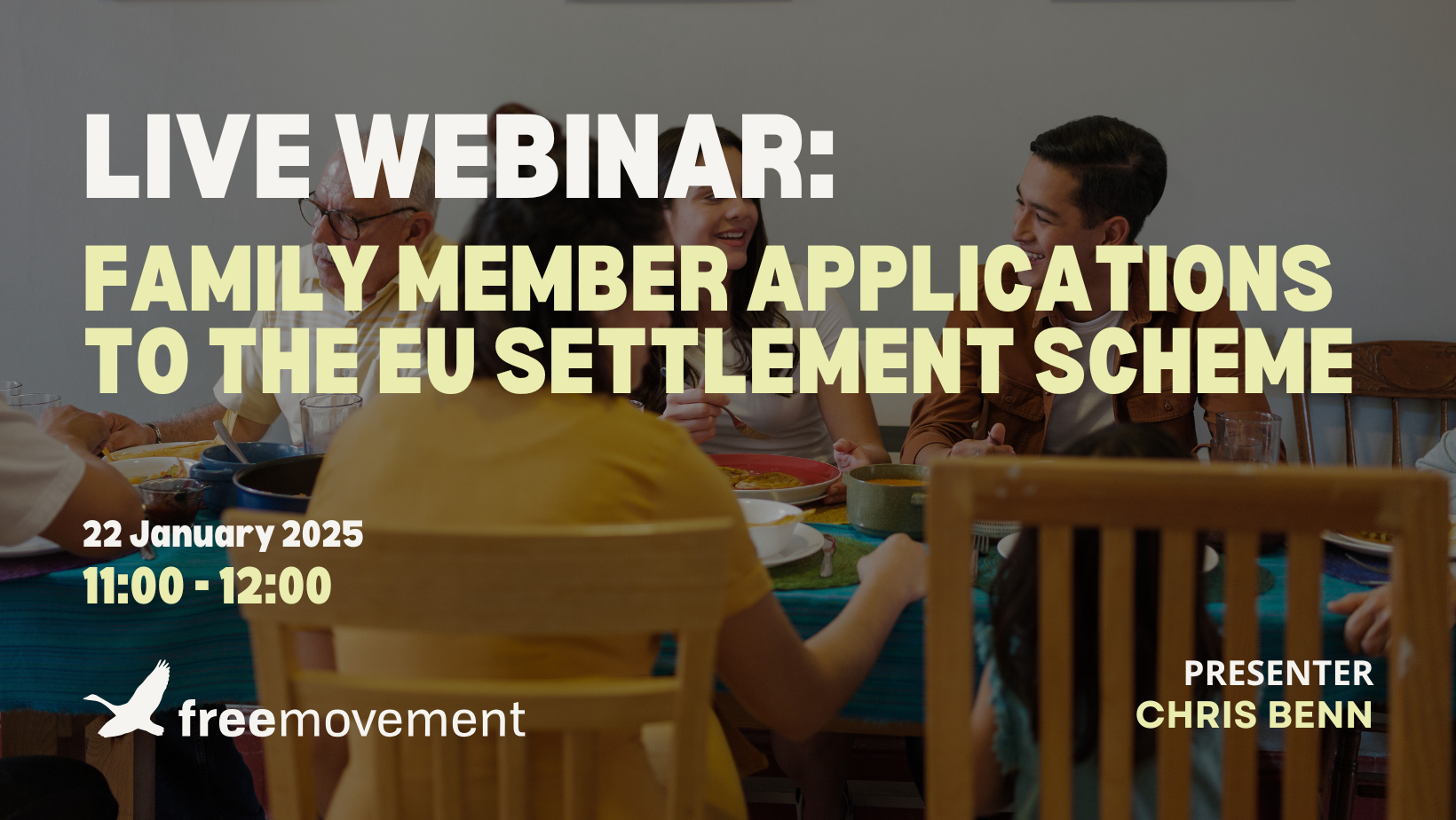- BY Sonia Lenegan

EEA national appellant in prison on 31 December 2020 deemed not to be exercising treaty rights
The Upper Tribunal has dismissed the appeal of an EEA national who was in prison over the Brexit deadline of 31 December 2020 on the basis that he was not exercising treaty rights immediately prior to the end of the transition period. The case is Manyo (EEA deportation, Imprisonment at 31/12/2020) [2024] UKUT 00362.
Background
Mr Manyo is an Italian national who arrived in the UK on 1 February 2016. On 25 April 2017 he was issued with a registration certificate as the family member of an EEA national. On 11 October 2018 he was convicted of robbery, possession of a bladed article and possession of cannabis. On 7 September 2019 he made an application under Appendix EU.
On 7 July 2020 he was sentenced to three years and ten months. On 28 July 2020 he was issued with a notice of liability to deportation under the Immigration (EEA) Regulations 2016. On 23 July 2021 Mr Manyo was served with a notice of decision to make a deportation order.
He responded on 2 August 2021 with reasons why he should not be deported. On 27 January 2022 a deportation order was made under section 32(5) of the UK Borders Act 2007 and Mr Manyo’s human rights claim was refused.

The Home Secretary considered that there was no evidence that the appellant was lawfully resident under the 2016 Regulations immediately prior to 11pm on 31 December 2020. Mr Manyo’s deportation was considered to be conducive to public good and the Home Secretary concluded that the exceptions at section 33 of the 2007 Act did not apply. His application under the EU Settlement Scheme was refused on suitability grounds.
Appeal
His appeal was allowed by the First-tier Tribunal on human rights grounds on 16 June 2022. At the hearing, counsel for Mr Manyo raised the issue of whether the Home Secretary had applied the correct deportation regime, arguing that the decision should have been made under the EEA Regulations 2016 instead of the Immigration Act 1971 and the UK Borders Act 2007.
The First-tier Tribunal concluded that the EEA Regulations 2016 did apply, saying:
41. There is no definition of what is meant by the period immediately prior to the end of the transition period. On balance, I am persuaded that the Appellant’s employment up until July 2020 before his imprisonment for the final months before the end of the transition period, does satisfy the requirement that the Appellant be exercising Treaty Rights in the period immediately prior to 23.00 on 31 December 2020.
42. I similarly consider that having not been made subject to any deportation order and having come to the UK lawfully under EU law, that he was continuing to reside in the UK ‘lawfully’ at the necessary date; to use the language of the Citizen’s Rights regulations.
43. Therefore, on the Respondent’s own policy and on my reading of the relevant Acts and Regulations, the Appellant was to be covered by the saved 2016 Regulations.
The judge concluded that the deportation decision was not in accordance with the law because of this error and the appeal was allowed on article 8 grounds.
The Home Secretary appealed, arguing “the First-tier Tribunal Judge erroneously concluded the appellant satisfies the requirement that he was exercising Treaty Rights in the period immediately prior to 23.00 on 31 December 2020.” It was submitted that Mr Manyo could not rationally have been exercising treaty rights “immediately prior” to 11pm on 31 December 2020 as he was in prison and that it was correct to use domestic law rather than the EEA Regulations 2016.
The Upper Tribunal agreed with the Home Secretary’s position, concluding that [at paragraph 32]:
The adverb ‘immediately’ imposes a requirement for something very close to a particular time. Read alongside the words ‘before IP completion day’ the phrase ‘immediately before IP completion day’ is in our judgment a reference to the particular circumstances as they were on IP completion day. That construction is in accordance with the need to ensure an orderly withdrawal aiming to prevent disruption and to provide legal certainty to citizens and economic operators as well as to judicial and administrative authorities in the Union and in the United Kingdom, as cited in the preamble to the Withdrawal Agreement.
The decision of the First-tier Tribunal was set aside and the decision is to be remade by the Upper Tribunal.
Headnote
The headnote states:
1. An EEA national who had not acquired the right of permanent residence and who was in prison on 31 December was not exercising Treaty Rights in accordance with Article 7 of Directive 2004/34/EC, and therefore was not lawfully resident in the United Kingdom by virtue of the EEA Regulations 2016 immediately before IP completion day.
2. It follows that where the appellant cannot benefit from the saving of the EEA Regulations 2016 during the grace period and whilst applications are finally determined as set out in the Citizens’ Rights Regulations 2020, a deportation decision must be taken and assessed by reference to the domestic legal framework by reference to the Immigration Act 1971, UK Borders Act 2007 and the Immigration Rules.
SHARE


